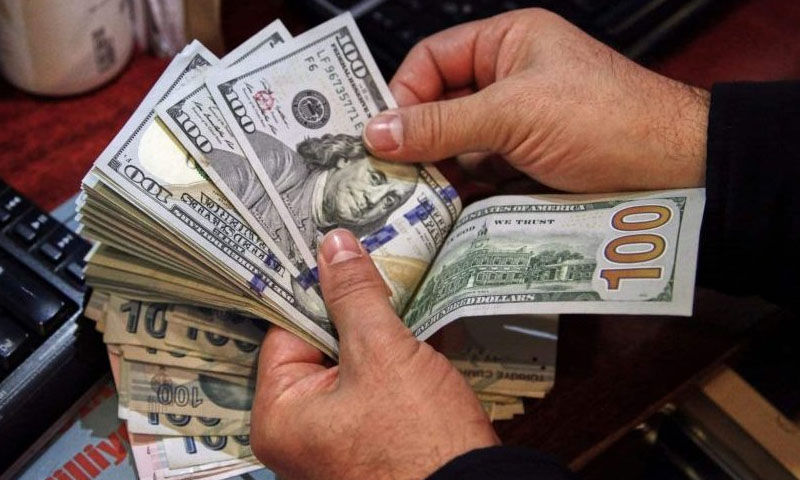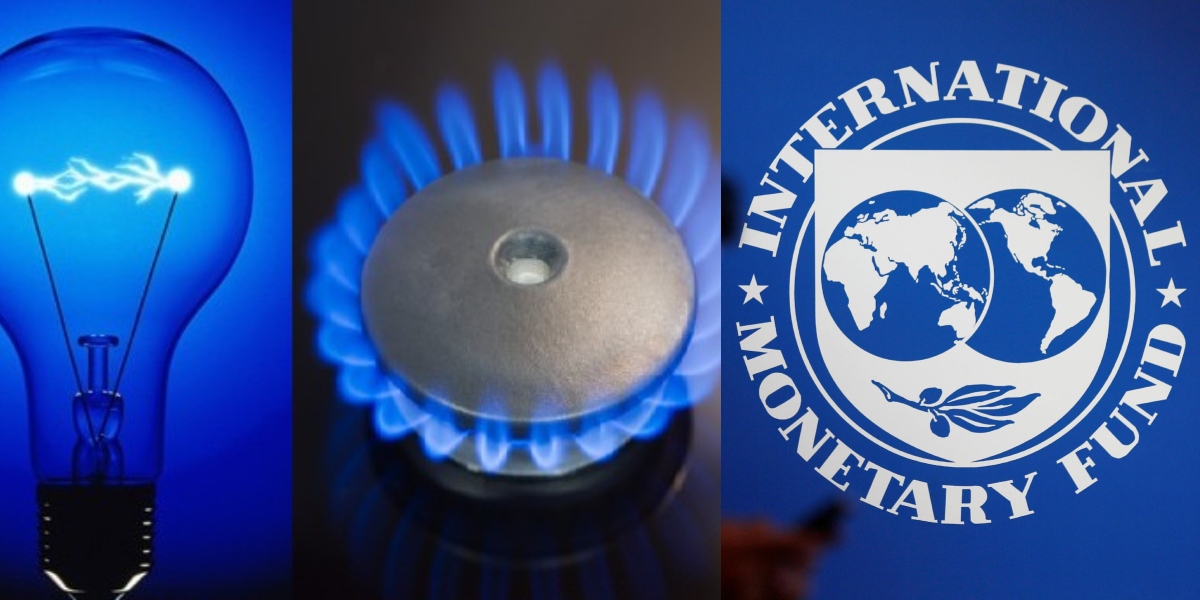- Web Desk
- Jul 10, 2024
IMF predicts about Pakistani currency’s value against dollar in 2024
-
- Web Desk
- Jul 20, 2023

ISLMABAD: The International Monetary Fund (IMF) has predicted that the dollar will go up to Rs305 against the Pakistani currency in 2024.
According to a report in The Express Tribune, the IMF’s forecast for the dollar is higher than the government’s budgeted rate, which is set to be Rs290.
According to the report, if the dollar crosses the mark of Rs300 during the current fiscal year, it will have implications on foreign borrowings, the cost of running foreign missions, and the Public Sector Development Program (PSDP) in Pakistan.
Fluctuations or inaccurate estimations in the dollar rate during the budgeting process can lead to increased expenses and the need for supplementary grants.
The devaluation of rupee is a complex phenomenon that has various effects on Pakistan’s economy. Here are some of the possible impacts
Inflation
Devaluation of rupee means that the imported goods and services become more expensive in terms of local currency. This can lead to an increase in the general price level of the economy, especially if the demand for imports is high and the supply of domestic substitutes is low.
Inflation can erode the purchasing power of consumers and reduce their real income. It can also increase the cost of production for firms that rely on imported inputs, such as raw materials, machinery, fuel, etc.
Inflation can also affect the expectations of economic agents and create uncertainty and instability in the economy.
Trade balance
Devaluation of rupee can have a positive or negative impact on the trade balance, depending on the price elasticity of demand and supply for exports and imports.
If the demand for exports is elastic, meaning that a small change in price leads to a large change in quantity demanded, then devaluation can increase the competitiveness of Pakistani products in the international market and boost the export earnings.
Similarly, if the demand for imports is inelastic, meaning that a large change in price leads to a small change in quantity demanded, then devaluation can reduce the import expenditure and improve the trade balance.
However, if the opposite is true, meaning that the demand for exports is inelastic and the demand for imports is elastic, then devaluation can worsen the trade balance by reducing the export earnings and increasing the import expenditure.
Foreign debt
Devaluation of rupee can increase the burden of foreign debt servicing for Pakistan, as it has to pay more rupees to repay its dollar-denominated loans. This can affect the fiscal position of the government and reduce its ability to spend on public goods and services.
It can also affect the creditworthiness of Pakistan and increase its risk premium in the international financial market.
Foreign reserves
Devaluation of rupee can affect the level of foreign reserves held by Pakistan, which are used to intervene in the foreign exchange market and maintain exchange rate stability. If devaluation leads to an improvement in the trade balance, then it can increase the inflow of foreign exchange and boost the foreign reserves.
However, if devaluation leads to a deterioration in the trade balance, then it can decrease the inflow of foreign exchange and deplete the foreign reserves. Moreover, if devaluation creates panic and speculation among investors and traders, then it can trigger capital outflows and further reduce the foreign reserves.
Economic growth
Devaluation of rupee can have a positive or negative impact on economic growth, depending on its net effect on aggregate demand and supply.
If devaluation stimulates exports and reduces imports, then it can increase net exports and raise aggregate demand. This can create a multiplier effect and increase output, income and employment in the economy.
However, if devaluation causes inflation and increases production costs, then it can reduce aggregate supply and create a contractionary effect on output, income and employment. Moreover, if devaluation affects confidence and expectations negatively, then it can reduce investment and consumption spending and lower aggregate demand.




